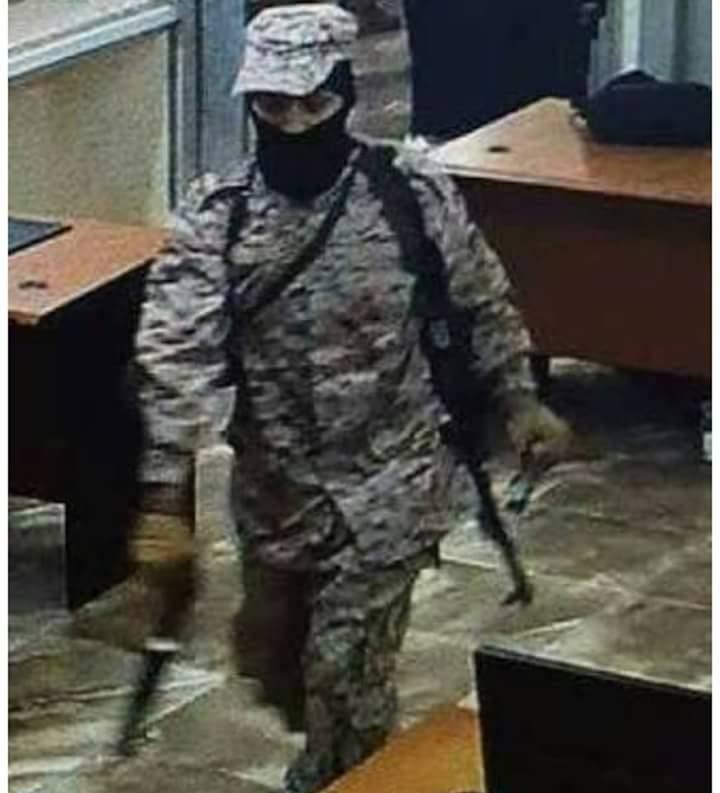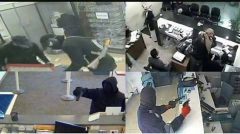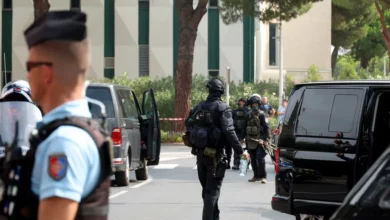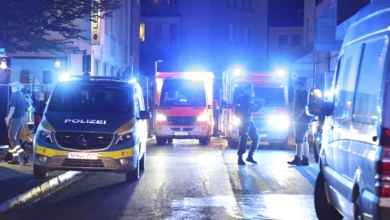
With the recent failure of the Islamic State-affiliated group ‘Sinai Province’ in launching wide-scale attacks against the army and police check points in North Sinai’s desert, the group started to move to new strategies such as street-war and armed robbery.
Through the past two weeks, the group has engaged in several attacks against army affiliated institutions or checkpoints in North Sinai in the desert. However, these attacks failed to achieve their desired target.
A recent example is the suicide attack that targeted a cement factory. The attack was foiled when an army conscript sacrificed his life and opened fire against the suicide bomber whose vehicle blew up and left the conscript dead.
With a great number of militants, the group started on Monday a wide-scale operation for the sake of proving its presence — the operation targeted an army checkpoint at Karm El Kawadis in North Sinai where the group made its first wide-scale operation in 2014 that left nearly 30 army conscripts dead.
However, Monday’s wide-scale attacks were foiled by the armed forces and the air force — the counter offensive succeeded in killing 24 IS militants during the launch of their attacks, according to a statement issued from the official army spokesperson.
The rest of the militants moved rapidly to the main city inside North Sinai, Al-Arish, where they targeted a church based in the city’s main street of 26th July. But this attack also failed following a police sniper in a sentry tower being able to target the militants.

At the same time, other militants from the group targeted a state-run bank branch where they were able to seize nearly 10 million EGP, according to media statements from the CEO of the state-run Bank of Al-Ahli. Both attacks led to the death of three policemen and an elderly lady, in addition to the injury of another 17 civilians.
The incident is considered to be the first of its type to be implemented by Sinai Province.
However, with the group’s bank robbery, it has also raised the question of the group’s financial strength.
On a regular basis, Egyptian media outlets and other security reports assert that the Sinai Province group is receiving finance from certain countries that are accused of being sponsors of terrorism, including Qatar.
Through the 2016 investigation of a number of people who were arrested and accused of belonging to the Sinai Province group, in which there were 292 defendants being put on trial, some evidence was collected suggesting that the group depends on two main pillars. The first, the military side, included the group buying weapons from the Gaza-strip based Islamist group Hamas. The weapons would then be smuggled through tunnels into North Sinai.
The second pillar of the group’s financing included receiving donations and logistical support from inside of Egypt, according to state-run newspaper Al-Ahram.
In a statement released in the aftermath of the armed robbery against the bank’s branch located in Al-Arish city, the state-run bank Al-Ahli asserted that the militants targeted the main treasury of the bank once they entered the branch.
“The group is currently suffering from severe shortage in money and can’t keep up its financial demands as their funding has been drained from Qatar and Turkey and then from the Gaza strip where IS militants are moving it to Sinai,” former chief of staff of the Egyptian special forces unit 777, Hatem Saber, told Egypt Independent on Tuesday.
He noted that due to the recent Egyptian-sponsored reconciliation of the Palestinian political factions Hamas and Fatah, the IS group decided to retaliate. This being because the financial resources are now under control of the Hamas movement in co-ordination with the Egyptian Intelligence [El Mokhabarat El –Amma].
“In the upcoming period, the Sinai Province group will resort to raids against financial institutions for the sake of affording its demands, and this is a sign of the success achieved by the government is broadening the blockade against IS,” he added.
Everyone who is proven to be member of or affiliated with IS in the Gaza strip will be arrested, as part of a new cooperation framework between Hamas and Egypt.
Since declaring allegiance to IS, the group has intensified its attacks against army and police forces based in North Sinai. The army is still conducting ongoing operations as part of its ‘Martyrs Right’ campaign to eliminate the presence of the group.
The group’s activity reached its peak in February, when numerous Coptic residents in North Sinai started to flee the governorate in the wake of an unprecedented wave of violence that included the burning and slaughtering of Copts and other civilians.
Sinai Province considers the army and police force as apostates as well as civilians who do not support the group.




